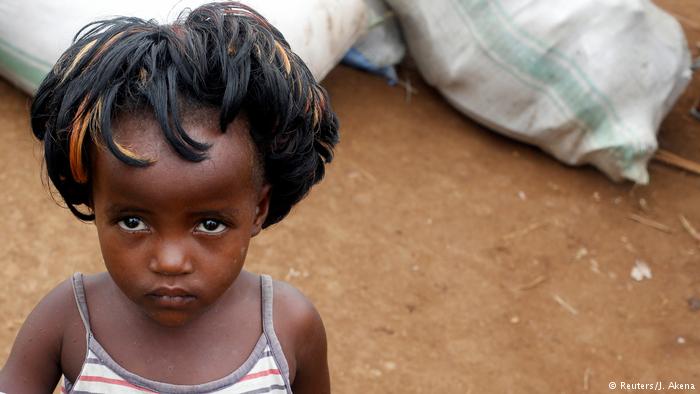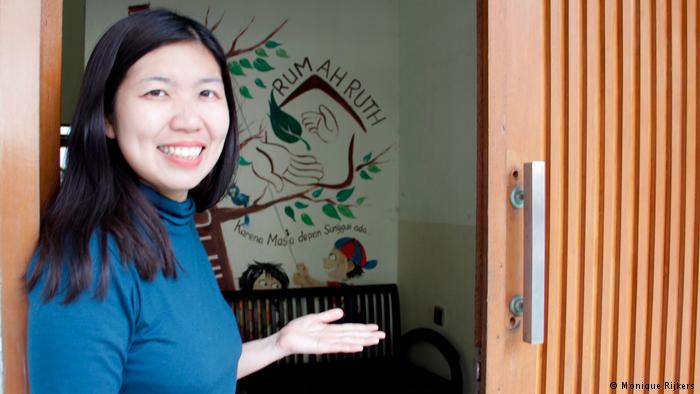Heal yourself
 Why do some communities seem to tolerate or at least, serve as breeding grounds for sexual assault? What can victims do after the incident has happened? How can a victim learn to deal with flashbacks and return to normal life? Women Talk Online blogger Beenish Javed spoke to Carolyn Worth, manager at the South Eastern Centre against Sexual Assault Melbourne Area (SECASA), Australia. Her institute has helped rape victims from different parts of the world.
Why do some communities seem to tolerate or at least, serve as breeding grounds for sexual assault? What can victims do after the incident has happened? How can a victim learn to deal with flashbacks and return to normal life? Women Talk Online blogger Beenish Javed spoke to Carolyn Worth, manager at the South Eastern Centre against Sexual Assault Melbourne Area (SECASA), Australia. Her institute has helped rape victims from different parts of the world.
Beenish Javed: How can we change attitudes so the community as a whole becomes intolerant to sexual abuses?
Carolyn Worth: Sexual violence is a multidimensional problem. Changing attitudes takes time. In order to make a community intolerant of sexual assault and sexual harassment it is essential to have a multi-tiered approach. This includes running programs in primary and secondary schools, having programs in tertiary institutions and running national programs across a range of media. Different approaches bring about change in different parts of the community. Sexual assault results from the complex interplay of individual, relationship, social and cultural factors. Consequently any change in attitudes requires all these factors to be challenged.
Why are women mostly the victims of sexual assault?
Men appear to misread body language. In some communities, men have a sense of entitlement and women and children are easy targets as there is a power imbalance. Gender inequality and a cultural acceptance of male violence are contributing factors to women being the majority of victims of sexual assault. There is also an issue around vulnerability and difference. In Australia, gay men are targets of sexual violence. People with cognitive impairment and a physical disability have double the rate of sexual assault of people without these vulnerabilities.
It´s a common perception that people who commit sexual assaults have some form of mental illness. Is this true?
On occasions people with mental illnesses commit crimes but there is no evidence to suggest that having a mental illness makes you more likely to sexually assault adults or children.
Self-blame is among the most common feelings which a victim has to face. How can they deal with it?
Self-blame and feelings of guilt are commonly reported by sexual assault victims. It is important that victims understand that they are not to blame for the socio-cultural factors and ideas of masculinity that lead to sexual assault.
Research about the best approaches to deal with self-blame and guilt shows that cognitive behavioral therapy and feminist approaches get the best results.
For some women, engaging in groups with women who have been through similar experiences is a powerful force for assisting in overcoming self-blame. Other women prefer to research for themselves and there is material on the web which gives you suggestions for managing your distress and symptoms.
What is the first step a survivor should take after the incident?
It depends on how people deal with trauma and distressing situations. In Australia you can contact a sexual assault centre and attend to talk about your options. If you think you might want to report to the police and have a medical team to collect forensic evidence, then it is important that you do this quickly as DNA and other evidence can disappear fast. If you need emergency contraception and blood tests, these are also best received as soon as possible after the incident so that you can take the required medicines if it turns out that you have contracted a sexually transmitted infection.
If you decide you do not want to report it, then it is useful to talk with a sexual assault counselor so that you can decide whether you are able to manage your situation or need additional help.
What is the best way to deal with flashbacks related to the assault?
A flashback is a dissociated memory that returns to consciousness. It might be a smell, a taste, a sound, an image, an emotion, or a combination of these things.
These strategies may if you have a flashback:
- Try to relax
- Concentrate on breathing deeply and slowly
- Remind yourself that the abuse is not happening now
- Find a safe place
- Seek out a support person
- Imagine a safe place
- Remember positive encouragements from your support people
- Touch or hold something to ground you
- Hold onto a soft toy or an object that helps you feel safe/comforted
- Talk to other people about what has happened to you with the flashback
Do you have victims who come from more conservative countries? How do you deal with them?
It is extremely difficult for victims from more conservative countries. In many cases they do not want their husband or family to know as this would be interpreted as the woman behaving badly.
We deal with all victims by keeping their details confidential and allowing them to make their own decision about what path they wish to take. In Australia it is illegal to identify a rape victim or the rapist in case that identifies the victim. It is always very difficult for these women because they often have to deal with the trauma alone or only with our assistance.
However, there have been cases where conservative communities have found out about the sexual assault and it becomes difficult for the victim, her children and her family. We have assisted people in moving out of their community in the past when it has been too difficult for them to remain in their neighborhood.
How important is the family’s support system for rape victims?
It is important that rape victims are believed and supported. One of the most important elements in recovery is being able to rely on people you trust which are often close family members. Recovery is aided by a strong support network and being believed.
Interview: Beenish Javed
Editor: Manasi Gopalakrishnan
Beenish Javed is a reporter working for ARY News, Islamabad. She has been awarded a two-month long fellowship by the Friedrich Ebert foundation (FES) in Germany and is currently in DW, Bonn. You can follow Beenish on Twitter @Beenishjaved.






